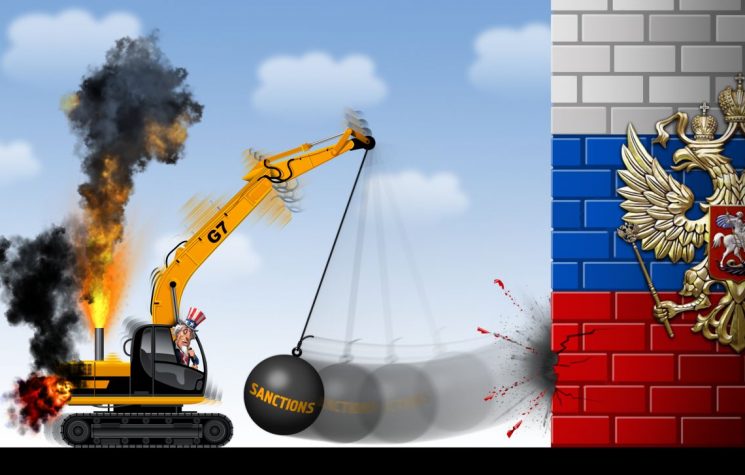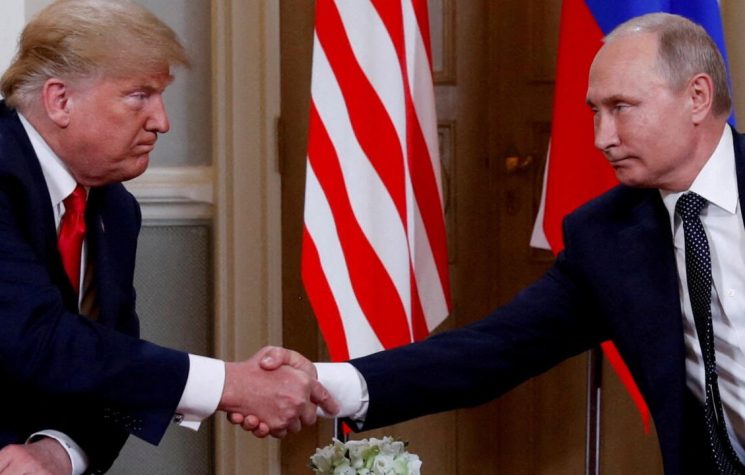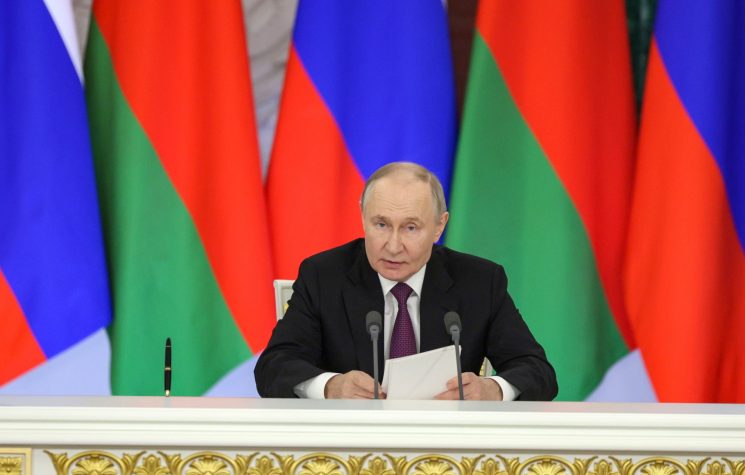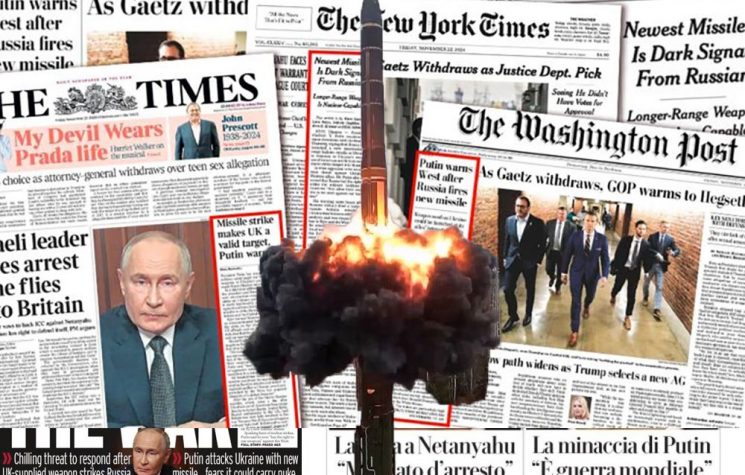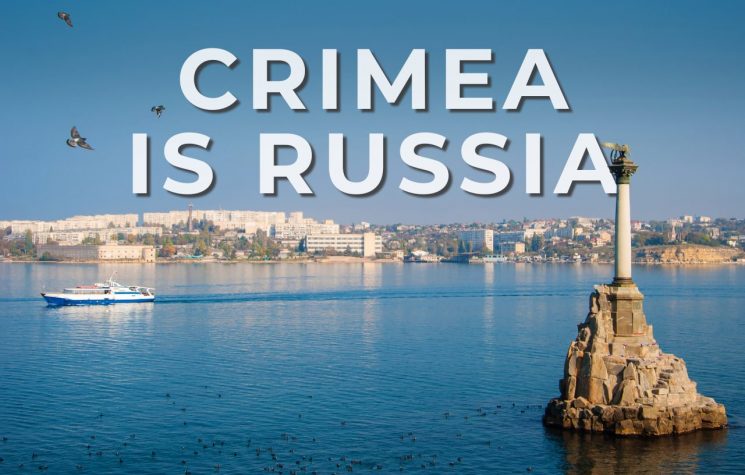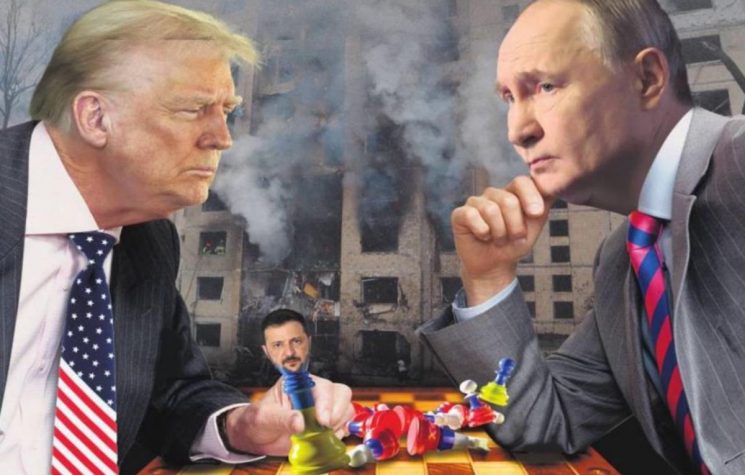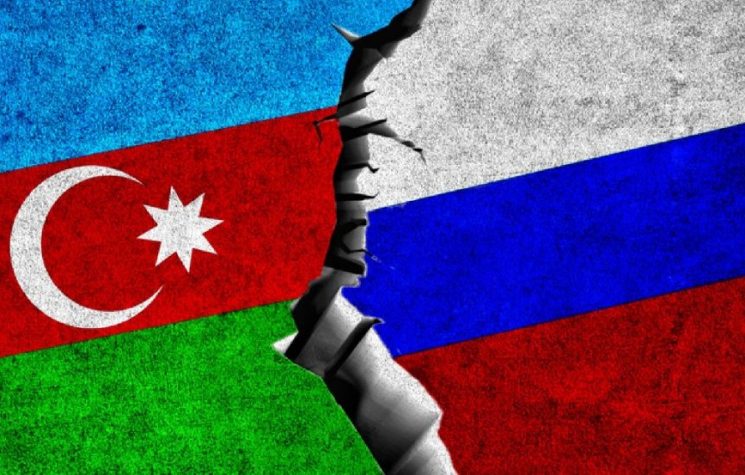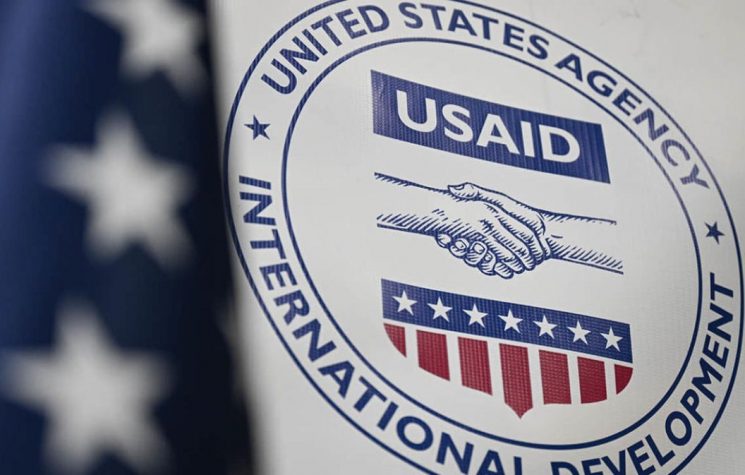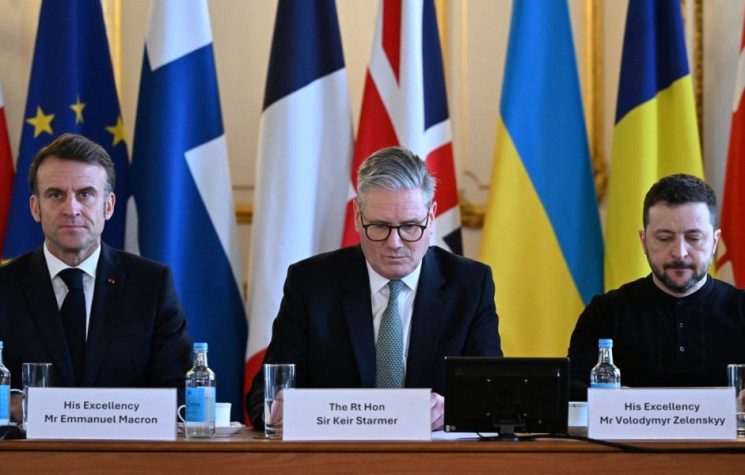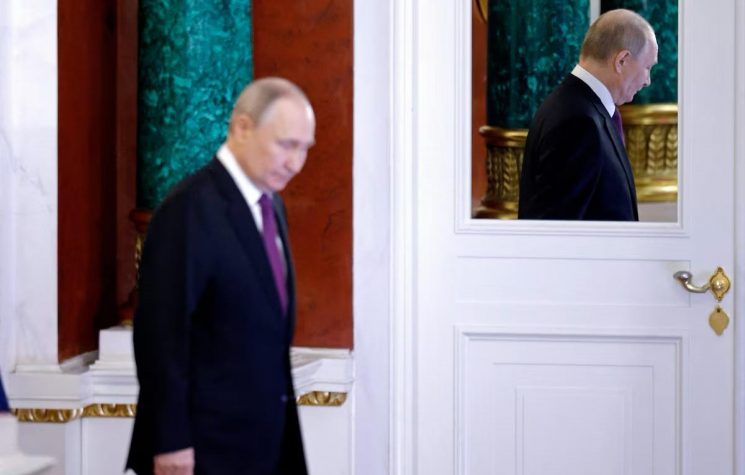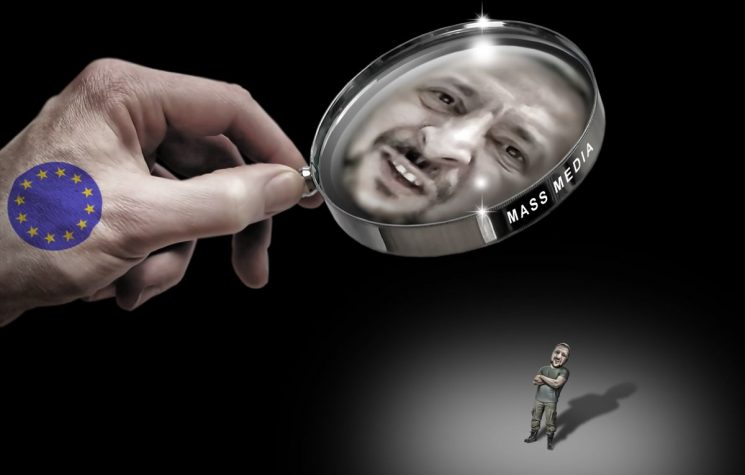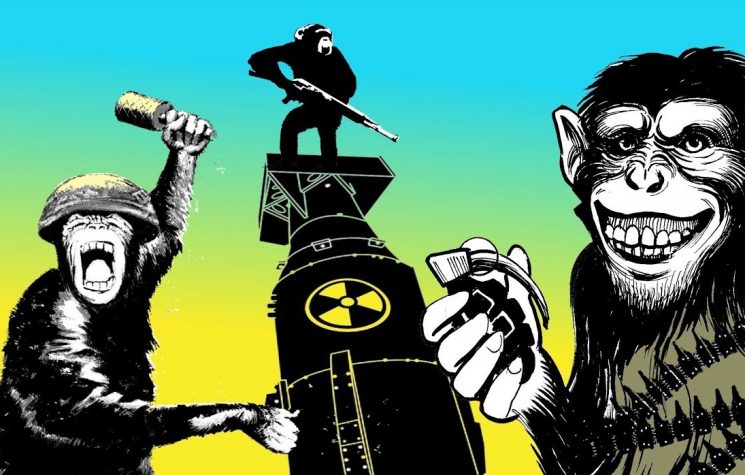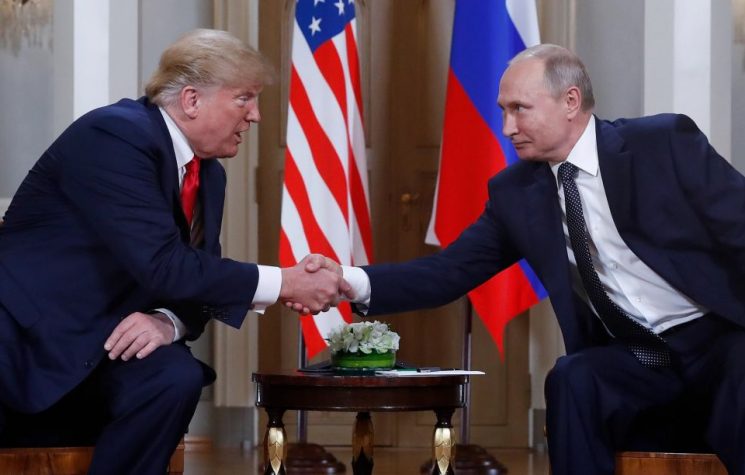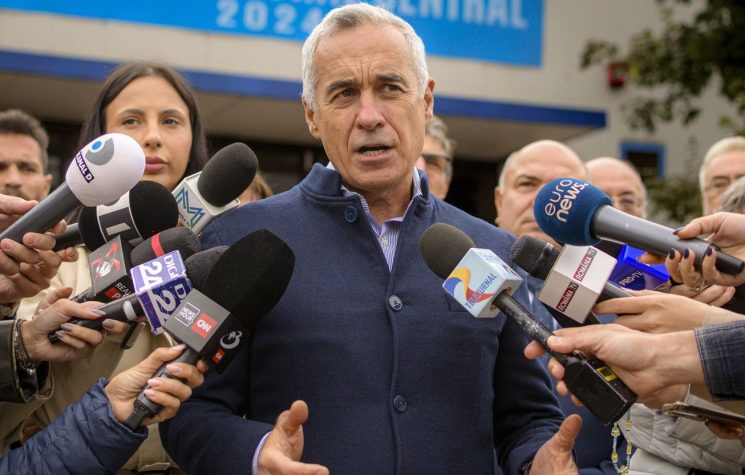Not since the Vietnam War – when liberals behaved like peaceniks and not the Neocon country cousins they’ve become – has the media seriously scrutinized the US government’s arguments for military exploits abroad.
From the oilfields of Iraq, to the mountains of Afghanistan, to Trump’s classic head fake in Syria when a few missiles demolished a deserted airfield, triggering NBC host Brian Williams to get all choked up over “the beauty of our weapons,” the MSM has dutifully played water boy to Uncle Sam’s overseas misadventures. Somewhere, somehow along the way Americans inherited a Fourth Estate that actively promotes military aggression abroad.
Last week, however, it looked as though the White House press corps experienced an awakening of sorts as the risk of Russia and NATO stumbling headlong into Armageddon looked razor close. That epic moment in US media history happened when State Department spokesman Ned Price, fleshing out an earlier report from the Washington Post, claimed that the Kremlin was producing a video of a mass casualty event in Ukraine to be used as a pretext for a Russian invasion.
According to Price, the video is “fabricated by Russian intelligence using crisis actors” and is “one of a number of options the Russian government is developing as a fake pretext to initiate and potentially justify military aggression against Ukraine.”
Reporter: “It’s an action that you say they have taken, but you have shown no evidence to confirm that. […] This is like – crisis actors? Really? This is like Alex Jones territory you’re getting into now.”
Must-watch exchange between @APDiploWriter Matt Lee and @StateDeptSpox. pic.twitter.com/RPIPb2zwf5
— The Hill (@thehill) February 3, 2022
In the past, these zero-calorie morsels of intel from the State Department would have been gobbled up by the press and regurgitated across every front page the very next morning. But just as Price was about to move on to more pressing matters, like maybe what flavor ice cream the Commander-in-Chief prefers this week, something weird happened.
Matt Lee, a veteran writer with the Associated Press, unexpectedly pounced on Price, demanding to know how he can “support the idea that there is some propaganda film in the making?” At one point Lee even suggested “this is Alex Jones territory” with regards to the idea of crisis actors being employed.
In other words, Lee wanted something that the White House hasn’t been forced to produce since Monica Lewinsky’s stained blue dress surfaced at Bill Clinton’s 1998 impeachment trial – gold ol’ fashioned, hardcore evidence. Price, visibly stunned, apparently couldn’t believe that the term “intelligence” no longer worked to mollify a roomful of reporters as it once did.
What is so laughable about the Price-Lee standoff is how a US reporter simply doing his job – pressing the State Department for evidence regarding an unclassified intelligence report – has actually turned into a major news story. And as the Price-Lee saga went viral, the main question – the veracity of the ‘Russian video’ claim – went conveniently missing in action. This shows how far the paying audience has allowed the establishment to travel from that safe space known as reality.
At a time when so many media stories are generously peppered with anonymous citations from various ‘former senior intelligence officials’ and ‘high-ranking diplomats,’ it’s no wonder that government officials feel they too are at liberty to spew ‘intelligence’ without the need to demonstrate its authenticity. Why should Lee have expected anything more than a verbal assurance when the majority of news channels and publications are themselves guilty of such shoddy standards (even the highly respected journalist Seymour Hersh was called out for the excessive use of anonymous attribution, as he did in his windy 10,128-word essay detailing the US military’s 2011 raid on Osama Bin Laden’s compound in Pakistan)?
While it is necessary for the media and government to ‘protect national security secrets,’ this excuse has been tossed around so many times in the past that the majority of news stories “might have been written by Lewis Carroll,” to borrow a line from Hersh’s abovementioned fantasy piece. It’s no wonder that fake news of the Russiagate variety, alongside military disasters based on ‘intelligence errors’ like Iraq, flourish like the Tom Clancy shelf at the local bookstore.
Following this unseemly showdown at the State Department, Rice and Lee reportedly made amends in a phone call and everything was hunky dory. So hunky dory, in fact, that the media practically carried out a false flag itself, possibly as an act of penance for Lee wandering so far off the reservation.
The renowned @APDiploWriter and I have had our fair share of sparring sessions, and I have the scars to prove it. Clearly, he’s no one’s dupe, and I’d never want to suggest otherwise. Nothing but respect for him, which I underscored in a call to him after the briefing.
— Ned Price (@StateDeptSpox) February 3, 2022
On Saturday, Bloomberg News agency, instead of maybe doing a deep dive on the wild Russian video claim, ‘accidentally’ hit ‘publish’ on a headline that read, ‘Live: Russia invades Ukraine’. It just so happened that the editors at the news agency, so the story goes, had that apocalyptic headline all type-set and ready to go, you know, just in case. Incredibly, this latest media glitch just happened to target the all-time favorite bogeyman (aside from Donald Trump) of the Democratic Party and just hours after the White House was forced to walk back its ‘Russian false flag’ conspiracy theory.
It was not the Russians who staged a false flag attack, but rather a major US news agency – and on a Saturday night, of all nights, when cognitive thinking abilities are most likely to be severely impaired. The question now is: how much lower can the mainstream media go? Currently, 57% of Democrats say they trust the media and only 18% of Republicans, according to Edelman’s annual trust barometer as reported by Axios. At the same time, 58% think that “most news organizations are more concerned with supporting an ideology or political position than with informing the public.”
So Bloomberg has the headline “Russia Invades Ukraine” ready, just in case. pic.twitter.com/h3zPNhhLwp
— Nassim Nicholas Taleb (@nntaleb) February 5, 2022
With the prospect of a possible war-by-proxy or worse erupting between Russia and NATO over highly volatile Ukraine, which Zbigniew Brzezinski listed as one of the “critically important geopolitical pivots” on the grand chessboard, the importance of a viable and trustworthy media to hold government officials to task has rarely been greater. Yet here we have a media industrial complex that, in the best case, acts as a ‘weapon of mass distraction,’ and, in the worst case, one of potential mass destruction. Americans must expect better from its floundering media; there is simply too much at stake.








